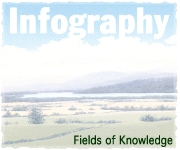
 | |
Agricultural Law | |
The following sources are recommended by a professor whose research specialty is agricultural law. |
· The National Agricultural Law Center, University of Arkansas. The National AgLaw Center has put together a large number of resources under the following headings: READING ROOMS. Numerous specific agricultural-law topics. Each reading room has a comprehensive list of electronic sources giving access to relevant statutes, administrative regulations, judicial decisions, governmental publications, Congressional publications, and AgLaw Center research articles related to the specific topic. Each Reading Room opens with a short overview of the topic. RESEARCH PUBLICATIONS. The AgLaw Center commissions research on specific topics and publishes these online in HTML and PDF formats. AGLAW REPORTER. Summaries of legal cases, administrative regulations, and administrative decisions in various agricultural programs by administrative-judicial officers. GLOSSARY. A detailed and comprehensive compilation of agricultural terms, programs, and policies. CONGRESSIONAL LINKS. Links to Congressional resources in agricultural law. REFERENCE DESK. A list of resources in agricultural law. AGRICULTURAL LAW BIBLIOGRAPHY. A full-text-searchable bibliography of more than six thousand citations to agricultural-law articles, books, and reports. The bibliography is divided into forty-eight major categories plus twenty-nine subcategories for a total of seventy-seven different subject headings. The bibliography is updated quarterly and begins its coverage in the early 1950s, being most comprehensive from 1980 to the present. http://www.nationalaglawcenter.org/
· The American Agricultural Law Association (AALA). The AALA is a professional organization of those persons interested in agricultural law. Although non-lawyers are members, the vast majority of the almost seven hundred members are lawyers. Of the members, about sixty percent are practicing lawyers, twenty percent academic lawyers, ten percent government lawyers, and ten percent agricultural economists, agricultural journalists, congressional staff members, and others. The members of AALA focus their work on agricultural-law issues. The AALA is the premiere membership organization for agricultural lawyers and has an online membership directory for public use that is an excellent tool for finding an agricultural lawyer in a particular state. http://www.aglaw-assn.org/
· Neil E. Harl and Robert P. Achenbach, Agricultural Law (Lexis-Nexis, Matthew Bender, 1980-present). A multi-volume (with loose-leaf updating) treatise on agricultural law. Almost every major topic has a separate chapter in this publication. The volumes give excellent overviews of its topics, but, as a treatise, the chapters cannot explore in detail every legal issue arising in agricultural law.
· Neil E. Harl and Robert P. Achenbach, The Agricultural Law Digest (Agricultural Law Press, 1989-present). This twenty-four-issues-per-year digest provides current information about developments in about twenty topics ranging from agricultural labor to agricultural zoning. The digest is particularly strong in agricultural-business planning, agricultural-estate planning, and agricultural taxation. This interfaces with the Agricultural Law treatise, because the authors are the same.
· Phillip E. Harris and Linda E. Curry (eds.), National Income Tax Workbook (Land Grant University Tax Education Foundation, annual). This book is available only to those who attend Land Grant University Tax Education Foundation seminars for accountants and lawyers. These seminars occur from October through December of each year in many states. The book is updated every year to provide comprehensive guidance to those who handle the tax returns that farmers, ranchers, and others in the agricultural sector must file with federal (primarily) and state (secondarily) governments. Most state's land-grant universities participate in this educational program in some form. This is a very practical, helpful book for persons who deal with income-tax and estate-tax issues in agriculture.
· Nuffield Council on Bioethics, The Use of Genetically Modified Crops in Developing Countries (Nuffield Foundation, 2003). No area of agricultural law is as hotly debated and contested as genetic-modification law and policy. False and biased information abound about this topic, and many of the web sites and books are deceptive and scare-mongering propaganda. This report from the Nuffield Council on Bioethics does as thorough and as thoughtful an analysis of the issues as any report extant. Readers may not agree with every conclusion, but they can be confident that this report offers factual information and balanced analysis of the subject of genetic-modification law and policy. http://www.nuffieldbioethics.org/go/ourwork/gmcrops/publication_313.html
"The Infography about Agricultural Law"
http://www.infography.com/content/318752367197.html
© 2009 Fields of Knowledge
Essex, Iowa 51638-4608 USA